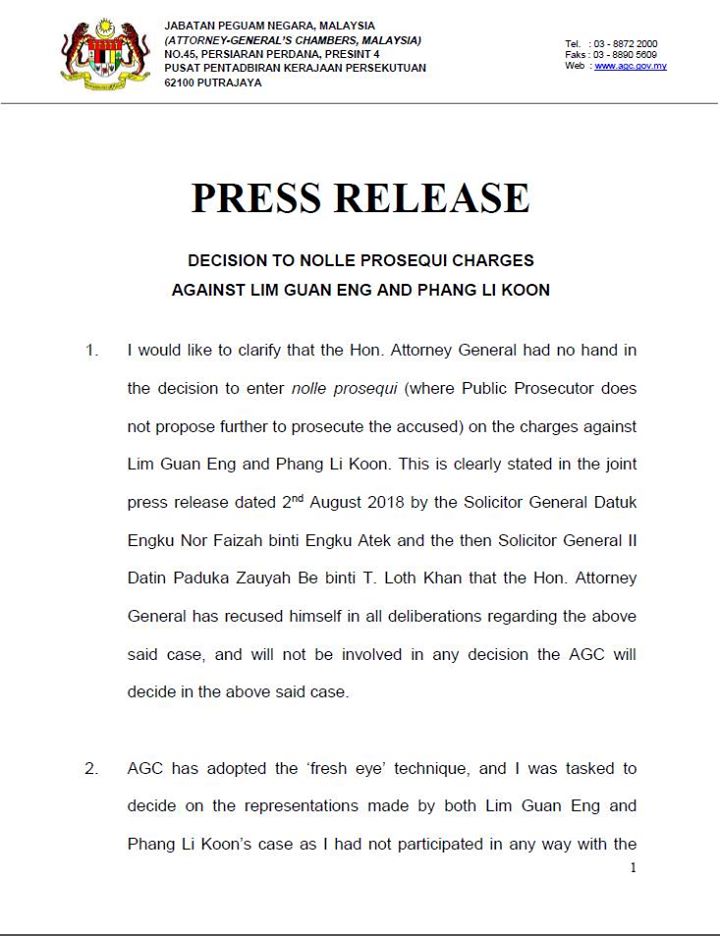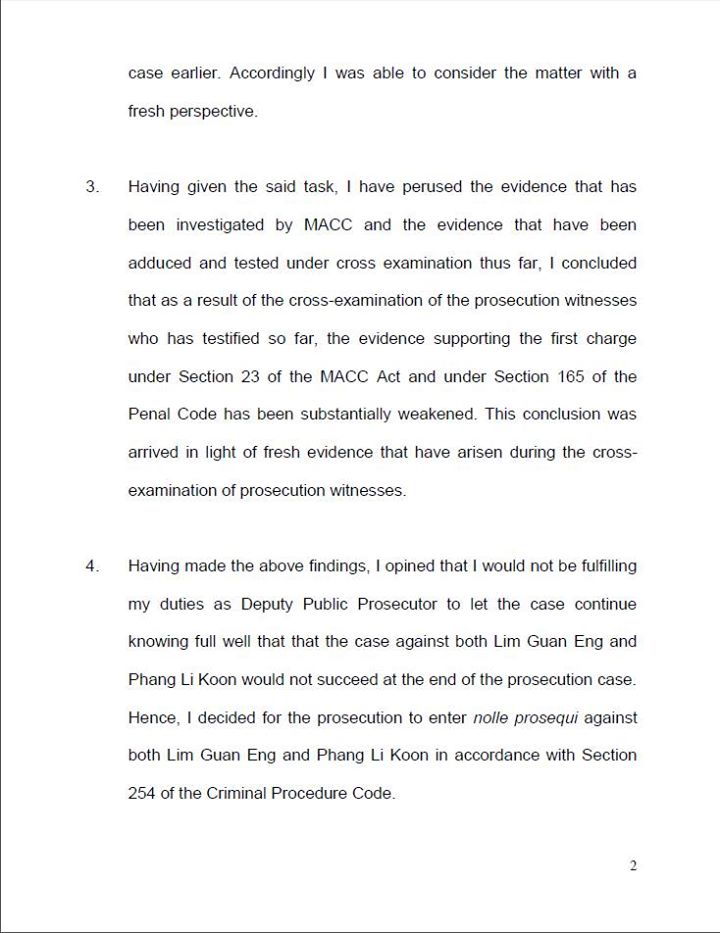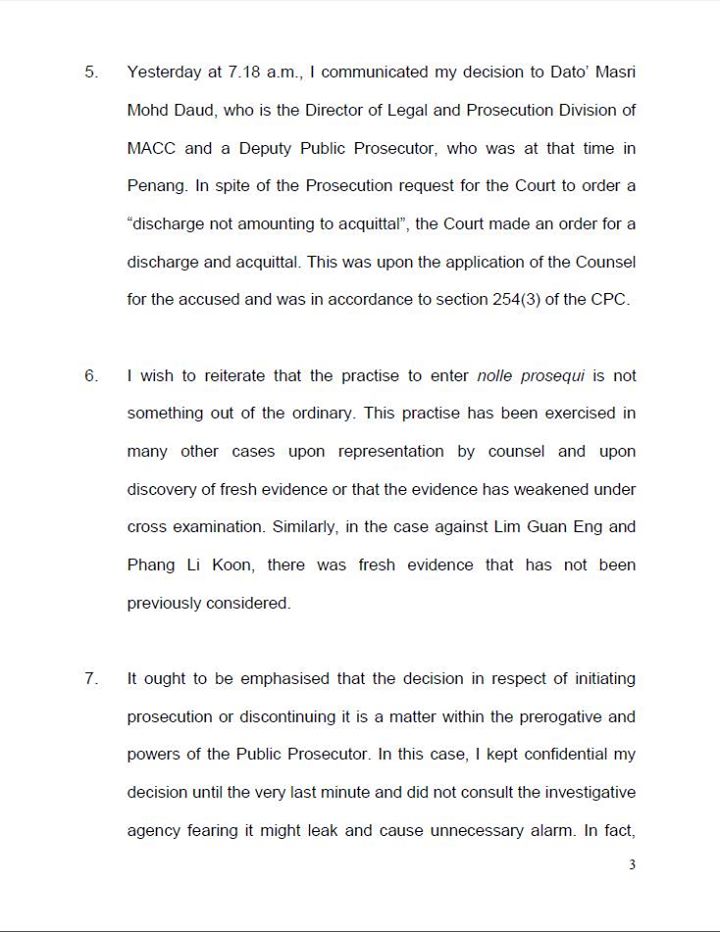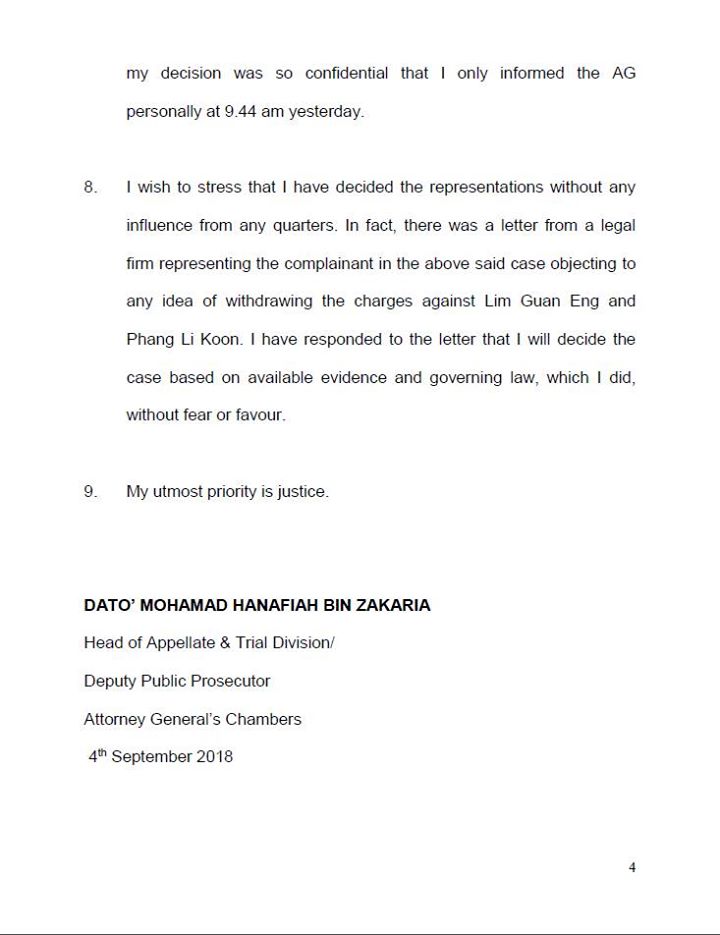Key takeaways from AGC’s decision to withdraw charges against Lim Guan Eng
by Clinton Tan ~ 4 September 2018

Contributed by:
Clinton Tan Kian Seng (Partner)
Tel: 603-6201 5678 / Fax: 603-6203 5678
Email: ctk@thomasphilip.com.my
Website: www.thomasphilip.com.my
The Attorney General's Chambers has issued a statement to explain its decision to discontinue the prosecution of Lim Guan Eng and Phang Li Koon.
Three key takeaways:
- The AGC emphasised that the Attorney General himself had since early August recused himself from handling this case. The case was then handled by other members of the AGC without any involvement or instruction from the Attorney General.
- The officer who then took charge of the case reviewed the evidence from a 'fresh eye' perspective as he was not involved in the case before this. When the officer reviewed the matter, he formed the opinion that the prosecution had a weak case, especially after the testimony of its witnesses were attacked during cross-examination.
- The AGC then exercised its right to ask for a "dismissal not amounting to acquittal". The Court, upon being informed of the AGC's position, exercised its right to acquit the defendants.
What is important to understand is that the actions above are in line with established legal principles and procedures. The AGC has a right, and more importantly a duty, to examine cases to ensure that it prosecutes cases when it has sufficient evidence to do so. Bear in mind that the prosecution has to prove its case "beyond reasonable doubt". This is a very high threshold in law.
The AGC has to examine the state of the evidence after trial and decide whether there is still sufficient evidence to pursue the case. If it thinks the evidence is weak and it is no longer able to prove its case "beyond reasonable doubt", the AGC should exercise its right to discontinue the charge. Otherwise, there may be an abuse of process and also waste of public resources.
What happened here in Lim Guan Eng's case could very well be due process of the law being carried out without any interference. But the AGC, in being half-a-step too slow in explaining its actions, allowed the public to question the integrity and correctness of its decision. This has been a costly lesson to the AGC's reputation, but at the same time heartening to see the rakyat boldly holding the public service to greater and higher standards.

Source: AGC Malaysia

Source: AGC Malaysia

Source: AGC Malaysia
